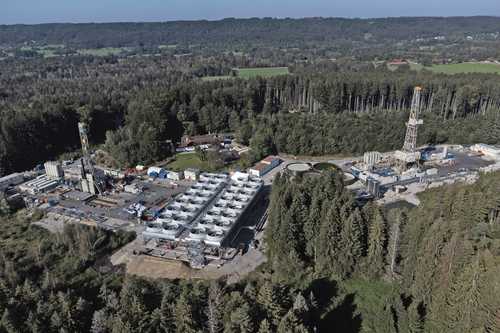The global energy transition is making progress, particularly in developed economies, such as China and Brazil. However, equity has declined and geopolitical tensions are causing uncertainty in energy security, according to a report by the World Economic Forum (WEF).
According to the report Promoting an effective energy transition by 2024the Energy Transition Index (ETI) showed the highest global average scores observed in the last decade for 107 out of 120 countries.
Sweden, Denmark, Finland, Switzerland and France performed well in the measurement, but China and Brazil stood out for their progress in shifting from fossil fuels to clean and renewable energy.
The report says that in 2023, the Asian giant put into operation as much solar PV as the entire world did in 2022, while its incorporation of wind energy grew 66 percent at an annual rate.
In addition, China is a major player in clean energy technology manufacturing globally, hosting more than 80 percent of the world’s solar PV module manufacturing capacity and accounting for 58 percent of onshore wind turbine manufacturing.
Brazil, for its part, has a long-term plan for hydroelectric power and biofuels, as well as institutional development initiatives, which have been a key factor in attracting investment.
According to the ETI, the Latin American nation ranked 12th among the countries with the best scores, being the only country in the region to be ranked within the top 15.
With no major variation, Mexico ranked 62nd, surpassed by Chile, Costa Rica, Uruguay, Paraguay, El Salvador, Peru and Panama.
Growing uncertainties hamper energy transition momentum despite record results from the Energy Transition Index
the report notes.
According to the WEF, the global outlook is marked by economic volatility, rising geopolitical tensions and technological change.
Equity has taken a hit over the past three years, driven by rising energy prices and fossil fuel subsidies.
This uncertainty is reflected in the index, where the rate of improvement over the past three years has slowed. She noted that since 2015, the global average score for the equity dimension has seen a slight decline of one percent.
According to the report, it is imperative that the transition be equitable if the energy sector is to be an engine of socio-economic growth, which implies affordable access to modern and clean forms of energy.
The WEF found that energy security remains under strain, although there are positive signs that countries are successfully mitigating most risks. The report highlights that The growing gap in financing the transition between advanced and developing economies requires greater international support and new approaches to unlocking investments
.

deanvazquez – Users – RCIIMS
Technology – Daily Dispatcher
IWI/Troy Rear Folding BattleSight For Sale | IWI Firearms USA
Strategi Efektif untuk Menang di ROGTOTO
shelfpanda – Folkd
Culture – Asean Coverage
Hargatoto: Bandar Togel Teratas di Indonesia untuk Kemenangan yang Aman – Cities Are Good For You
MotChillQ, Quang Ngai, Viet Nam | Local business
Certificate verification problem detected
MotChillQ · Profile · Disqus
Sports – Asean Coverage
Popular Online Casino Slot Machines – Sports Fundamentals
Entertainment – Buzzing Asia
How to Quickly Obtain Your Florida Handicap Parking Placard Online
Pilihan Terbaik Anda untuk Permainan yang Aman dan Menguntungkan: Gorilla4D
shelf panda (@shelfpanda) • BandLab – Make Music Online
Kullanıcı: safariuganda – Sihirli Elma Soru & Cevap
Panduan Lengkap tentang Toto Online dalam Dunia Perjudian – Catrionaknox
Arisaka Defense 18650 Series Light For Sale | IWI Firearms USA
terrycotton.website3.me
hassansheets | Users | joinDOTA.com
Online Lotteries and Cybersecurity: What Players Need to Know – Naigie
SDTFGHJK – Colegio San José Obrero |
The Impact of Live Streaming on Online Casino Communities – Nkrwxg
Sports – Surat Khabar
Profile – romeohorn – Melanoma Research Foundation
motchillq | Mbed
DataHK:PlatformTeratasuntukDataToto,Togel,danHKOnline < Sandbox < Daya Bay
Blade Tech Ultimate Carry Belt For Sale | IWI Firearms USA
Daily Dispatcher – News Of The New Age